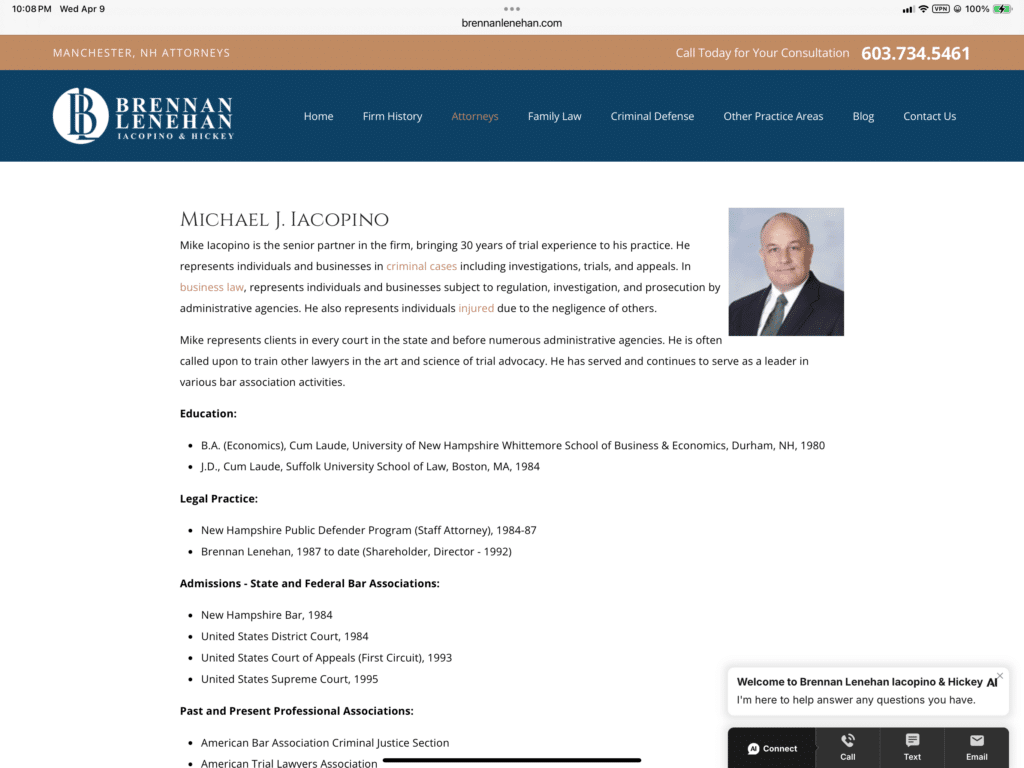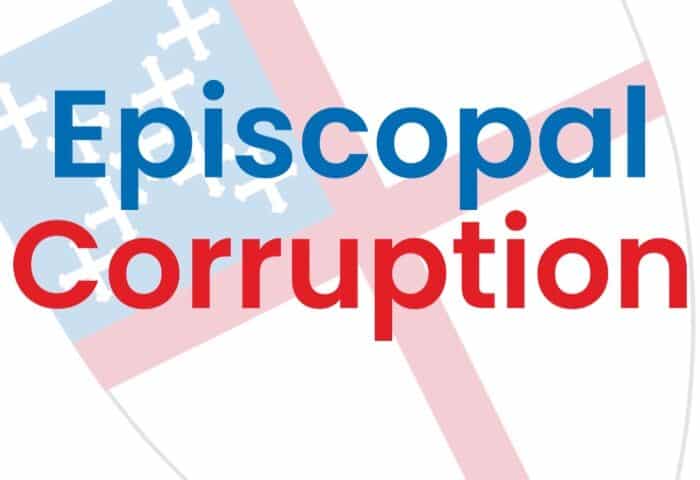Ed: We had hoped to cover the Richard Losch trial in person, but recent health issues with Anglican Watch editor Eric Bonetti’s husband prevented travel.
Per our policy, Anglican Watch normally does not identify the victims of sexual assault. We therefore refer to the victim in the Losch case as “Jack.”
The trial of Episcopal priest Richard Losch, now being heard in Grafton Superior Court in New Hampshire, entered its second day today before the jury began deliberations. At issue are allegations by Jack that, in 1976, Losch lured him and several other boys from Marblehead, Mass., to the Indian Pond Boy Scout camp in New Hampshire, which had not yet opened for the summer.
Jack, now 64, told the court,
“He was in the bed, lying behind me,” said of Losch. “I woke up and his hand was in the front of my underwear. He was fondling my genitals. I was incredibly afraid. I was terrified … so I did everything I could to make him think I was asleep.”
Jack continued:
“Then he pulled my underwear down. He put one arm around my chest and his other hand over my mouth. He pulled me against him and he began to rape me.”
Losch denies the allegations, telling a Marblehead area reporter,
“On the advice of my attorney, I have no comment to make other than that the charge is totally false, and I deny all allegations of wrongdoing.”
Additional witnesses included several law enforcement officials.
When asked by prosecutor Antonio Barry why he didn’t come forward about the alleged rape, Jack responded,
“Fear and shame,” per the Marblehead Current. “Fear that Losch would hurt me, that he would be believed over me. And shame that I had been raped.”
Jack said he told his brother about Losch a few years later. In 2020, he filed a claim with the Boy Scouts, reporting the abuse. Later, he talked to his pastor, the Rev. James Bixby of Clifton Lutheran Church in Marblehead, and the two went to report the alleged rape to Marblehead Police in November 2021. Bixby testified on Tuesday, along with Marblehead Police Sgt. Detective Sean Brady.
Subsequently, defense counsel Michael Iacopino argued that Jack delayed telling his story in an effort to obtain money from others and that Jack is now a “darling” of the “priest abuse community.”
Per the Marblehead Current:
‘Pure evil’
In what he calls a survivor impact statement, Jack wrote,
“What FL (Father Losch) did to me was pure evil. Evil that forever changed who I was and who I would become. It instantly ended my childhood. It permanently changed the physical structure of my brain. It shattered my little boy’s soul.”
Jack continued,
“I often feel afraid. I am claustrophobic. I have night terrors. I have flashbacks. I am terrified of suffocation. When emotions overwhelm me, I disassociate. For significant periods of my life, I abused ETOH [alcohol] and/or other substances.
Jack added,
“I was betrayed by my teacher, my Scout leader and my chaplain, a priest. Much later, I would realize that I was also betrayed by the church, my school and the Scouts.”
Our take
First, we question the ethics of defense counsel Iacopino’s arguments and equate them to the “gay panic” defense of Pennsylvania attorney Mike George, who argued that a defendant who shot a lesbian couple along the Appalachian Trail, killing one, did so as a result of “gay panic.” (Disclosure: AW editor Eric Bonetti was a clerk at the law firm that handled the case and researched case law for the trial.)
In George’s case, his argument came back to haunt him, resulting in a firestorm of entirely justified criticism from the LGBTQ community that derailed his nomination to the Pennsylvania Supreme Court — a nomination that would otherwise likely have proved successful.
Defense counsel’s conduct in the Losch case is equally outrageous. Indeed, Iacopino has practiced law long enough to know, or have reason to know, that the average victim doesn’t come forward for 40 years.

Thus, we have deep ethical concerns about Iacopino’s conduct in this case.
Additionally, one police officer who interviewed Losch early in the matter offered insightful testimony during the trial, telling the court that when he and his then-patrol partner asked Losch if he had ever slept with a young boy, Losch answered,
“I do… I wouldn’t think so. I wouldn’t think so, no.”
Further, while juries typically are instructed that they cannot infer anything from a defendant’s refusal to take the stand, most lawyers believe that jurors in reality ask themselves, “If this guy is innocent, why doesn’t he take the stand and tell us that?”
Anglican Watch is also aware, from a third-party source not connected with the Losch trial, that another male individual has approached law enforcement with allegations that Losch sexually molested him as a youth. We are as yet unable to verify the allegation independently.
Relatedly, the Diocese of Alabama’s claims that it is conducting a Title IV clergy disciplinary investigation into Losch’s conduct appear to be fabrications.
Specifically, we are unaware of any efforts by the Diocese to contact the victim or law enforcement officials for information.
Moreover, this publication has exhaustive research into the case but has never been asked by the Diocese to provide access to that information.
Nor has the Diocese — or any other Episcopal person or entity — done anything to assist the victim or provide assistance. Further, neither the Diocese of Alabama nor Bishop Glenda Curry has responded to our inquiries about this matter. Similarly, the Diocese and Glenda Curry have ignored allegations we forwarded of child sexual molestation by a priest who remains active within the Diocese.
Looking forward
Anglican Watch hopes the jury will reach a verdict tomorrow, and we will release additional information as quickly as we receive it.
We also have additional information on the case that is not appropriate to release prior to a verdict, which we will publish shortly. True to form, we also will have more to say about the Episcopal Church’s multi-layered moral failure in this matter, which we can only describe as “epic” and which extends all the way to former presiding bishop Michael Curry and his utter inaction in this matter.
In closing, the Losch case is proving at every level that the Episcopal Church is morally bankrupt, and we are happy to be quoted on that score.


Leave a Reply